Leaders Who Reflect, with Russ Smidt
What does it mean to reflect?
Should we reflect?
What is involved in reflecting?
What place does it have in our lives? As Christians? As Gospel Workers?
Russ Smidt, MTS Director of Training, spoke on this topic in a workshop at the recent MTS Leaders’ Training Day.
Russ humbly shared that reflecting often doesn’t come easy to us, and that it certainly doesn’t come easy to him. He shared that over his years in gospel ministry, he has become “… really good at giving feedback to himself and being critical in my thinking.” But Russ firmly believes that critiquing our work and ministry is only a small part of reflecting well.
So, what is reflecting?
Reflecting looks different to different people in different life seasons, but at its core, reflecting is all about thinking deeply and carefully about life, a situation, a relationship, etc. Russ shared that the key to him understanding what reflecting is was to start asking two questions, ‘What’s going on?’, and ‘Where is God?’.
Russ continues, “At the heart of Christian reflection and self-examination is the Gospel: the good news message of pardon, perspective and power to change. Christian reflection and self-examination ought not leave us condemned and discouraged.”
So, why reflect?
Reflecting offers an opportunity to slow down, observe, and track what God is doing in your life and ministry. Not only this, but reflecting inevitably overflows into deeply personal and biblical prayers of adoration, confession, thanksgiving, and intercession.
Russ talked through a number of Bible passages that invite and urge reflection to be a big part of the life of the Christian, including:
- Lamentations 3:40
- Psalm 119:59-60
- Matthew 7:3-5
- Romans 12:1-3
- 2 Corinthians 13:5
- 1 John 1:9
Reflective Gospel-Founded Practices
Russ concluded his workshop with four really practical ways that we can begin to make reflecting a helpful habit in our lives.
Give one a go!
- Journalling
Slowing down to pay attention to our lives and what God is doing in both the immediate and across seasons. Journaling can be done through…
- Writing in ‘dear diary’ form
- Writing a prayer
- Creative scribbled ink in a cheap exercise book
… There is no right or wrong way to journal. Give different ways a go!
- Examen
A set of questions/themes you return to at regular intervals. The father of ‘examen’, Ignatius would pause several times a day.
1) What am I grateful for?
2) How have I sinned?
3) How have I spent my time?
4) Seek forgiveness before God.
5) Ask for grace to make amends.
… Or, you can create your own focus questions/themes from your personal Bible reading and character formation objectives.
- 3 M’s
Mirror, Magnifying Glass & Microscope.
A focused journaling practice for reading through the Bible.
As I read God’s Word today…
Mirror: How is it helping me to see myself as I really am?
Magnifying Glass: What does God want me to magnify in my life today?
Microscope: What am I not seeing that needs focused attention?
- Reflection Circle
Used to reflect on an experience/event/issue.
1) Context: What was going on around/before that influenced the situation
2) Emotion: What was I feeling?
3) Image/Metaphor: Something that captures the situation
4) Theology: How does the Bible guide your reflection?
5) Presence: What is God doing here?
6) Insight: What are you learning about yourself?
7) Action: What is your decision/next action?
➡️ You can watch the full recording of Russ’ Leaders’ Who Reflect Workshop here.
